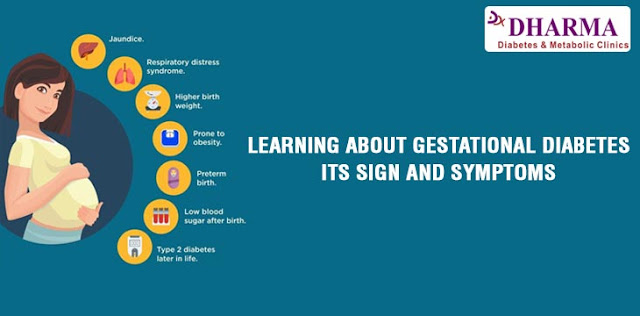Understanding Gestational Diabetes Care And Management
Gestational diabetes, as we all are aware of it is a high blood sugar condition that is caused only during pregnancy in women. The diabetic complication majorly occurs in the mid-term of pregnancy, which is found to manifest itself when the pregnancy hormones hinder with the normal function of the hormone insulin. Hence, the blood sugar levels rise in pregnant women making her vulnerable to diabetes. The various risk factors that have been reported to make pregnant women susceptible to diabetes are hypertension, overweight status before pregnancy, family history of the condition, older than 25 years, had unexplained that miscarriage or stillbirths have an excess of amniotic fluid. Near about 2 - 12 percent of pregnant women have been found afflicted with gestational diabetes. It is very important to take proper care during pregnancy and prevent the occurrence of gestational diabetes, as there exists a 30% chance of the women acquiring the condition for a lifetime and also the chances of getting afflicted with diabetes in the next pregnancy is very high.
Preventive Approaches For Gestational Diabetes
It is regarded that some of the guidelines that include various tests for the detection of diabetes in pregnant women greatly aid in the prevention of the condition. The tests such as fasting blood sugar, one hour, as well as two-hour blood glucose, are the clinical tools that provide clues to the doctor about classifying the women under various categories, thus depending upon the severity and thus, employing the appropriate treatment option optimal for them. Hence, it is also an aid for mitigating the health negative effects resulted in the case of later diagnosis of the condition. As per some recent clinical investigative study proved that diet plays a crucial role in preventing the gestational diabetes mellitus. The study analyzed the effect of three potential types of diet namely DASH (Dietary Approach to Stop Hypertension) diet, MED (alternate Mediterranean Diet) and HEI (alternate Healthy Eating Index) diet in preventing gestational diabetes. The DASH diet involves intake of dairy stuff and low-fat foods, HEI diet is rich in white and red meat along with containing high cereal fiber ratio as well as high intake of polyunsaturated fats compared to the saturated ones. Whereas, the MED diet has high amounts of seafood, fish and food grains and is characterized by a low intake of alcohol. The results proved that DASH, HEI, and MED diets reduced the risk of gestational diabetes by around 34%, 46%, and 24% respectively, thereby proving the importance of diet in maintain a healthy life and prevent disease condition.
Conclusion
Gestational diabetes usually gets away after the delivery of the baby. It is a form of a temporary form of diabetes, which needs efficient care and effective management during the gestational stage. The woman should make sure that she keeps good control over her diabetes, as it can directly affect the child of hers’, making the infant diabetes-prone. If there is a failure in controlling gestational diabetes, it can turn into type 2 diabetes for her.
Reference
Dr. Mudit Sabharwal is an expert diabetic doctor in Delhi-NCR. He can be consulted for diabetes treatment in Delhi.




Comments
Post a Comment